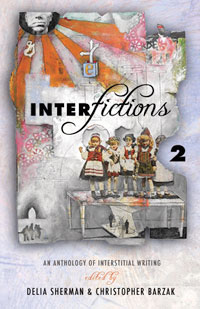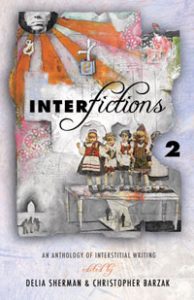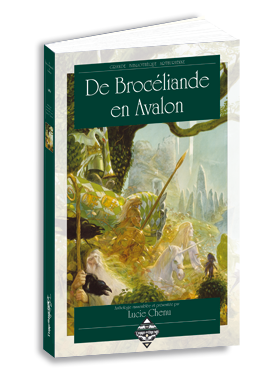Some thoughts on how to increase translation in English
(Note to my usual French readers : Auguste lectorat, ceci est la version anglaise d’un article dont la version française paraîtra demain. Merci de ne débattre qu’en anglais en commentaires, le débat français aura lieu dans l’article de demain ; je supprimerai tout commentaire francophone par souci de clarté. Merci de ta compréhension, tu es formidable.)
 There is an increasing awareness in the English-speaking world that the translation scales are heavily tipped on one side: the English-speaking world is being hugely translated around the world while it translates very little. That is the consequence of English being a lingua franca, of course. One could say it is very advantageous for those speakers, but what happens is that the English-speaking market is increasingly deprived of great works, of different, original visions coming from different parts of the world. Conversely, foreign speakers – and writers, because that is what I will be talking about – encounter tremendous difficulties in getting their work known beyond their own borders. The key for that is often English, as it is widely read in just about every country, and especially by just about every publisher, who might not otherwise know your mother tongue. At Loncon3, this year’s Worldcon in London, we had a panel called “Translation-wish, Translation-obstacles », under the tutelage of the Interstitial Arts Foundation, about how to best overcome that obstacle and bring foreign creative literature to the English-speaking market.
There is an increasing awareness in the English-speaking world that the translation scales are heavily tipped on one side: the English-speaking world is being hugely translated around the world while it translates very little. That is the consequence of English being a lingua franca, of course. One could say it is very advantageous for those speakers, but what happens is that the English-speaking market is increasingly deprived of great works, of different, original visions coming from different parts of the world. Conversely, foreign speakers – and writers, because that is what I will be talking about – encounter tremendous difficulties in getting their work known beyond their own borders. The key for that is often English, as it is widely read in just about every country, and especially by just about every publisher, who might not otherwise know your mother tongue. At Loncon3, this year’s Worldcon in London, we had a panel called “Translation-wish, Translation-obstacles », under the tutelage of the Interstitial Arts Foundation, about how to best overcome that obstacle and bring foreign creative literature to the English-speaking market.
A few words about me, so that you may know who’s talking: my name is Lionel Davoust, I have worked in the French SF&F field for close to fifteen years. I am a fantasy and thriller writer (six books out, 30-something short stories) and translator from English to French (for instance, you might have heard of the Science of Discworld series based on the genius work of Terry Pratchett – I translate the scientific parts, teaming up with Pratchett’s regular Discworld translator). I also teach a few classes in the literary translation curriculum of the Angers university, give creative writing workshops and masterclasses, and I sometimes edit fantasy magazines and anthologies. Also, I am an avid geek, used to be a marine biologist, remain a marine biology research volunteer, and could live on salami and chocolate alone. You can read me in English in the Interfictions 2 anthology, where I have an award-winning story translated called “L’île close ».
So, this article does not by all means intend to recap what was said at the Loncon panel, but to try and compile possible leads concerning the issue at hand: getting foreign stuff translated into English. I will focus on short stories, because the length makes it easier to invest time and effort in order to cross the great language divide, and because it seems to be a better way to get slowly noticed and start a foreign (or English-speaking) career. By all means, this post is just the beginning of the discussion. People, do not hesitate to contradict me, make additions, whatever, so as to try and compile all great ideas for the whole fandom to have available. Also, please be aware that what sells in a country does not necessarily sell in another one. Different markets, different cultures, different readerships have different expectations concerning form and themes. That said, let us consider, for the sake of the argument, that all things are otherwise equal.
So. Here are the strategies and ideas I have heard about, seen or come up with so far.
Lone writer’s strategies
… from the cheapest to the most expensive.
- Write a bestseller. Have a translation published. Profit. Obviously, this is rarely happening, so we will focus on the vast majority of cases where this does not actually happen…
- Write in English. Of course, this means instant availability in the foreign language of choice, but obviously you need some serious skills, and you might feel some qualms at leaving your mother tongue behind. If you have an already established career, you might have to re-learn lots of your craft and that can seem daunting.
- Translate yourself in English. That is much easier said than done. Even for a professional translator, you have a some personal bond with your story you might not easily leave behind, but you need to if you want to craft an efficient translation, delving deep in the meaning as if it was someone else’s work.
- Roughly write or translate in English, then hire a copyeditor. You will not really have any creative input on your work, so this is not for a beginner writer (and frankly, probably none of those strategies are) but the copyeditor will help you streamline the style, making it hopefully suitable for publication.
- Hire a translator. That costs money: good translators are pros and pros do not work for free. Be aware that hiring a subpar translator will probably hurt your work more than anything, so proceed with utmost caution. Also, for a novel-length work, this will probably cost way too much.
Of course, in any case, having your English version or work in your hands does not guarantee publication at all. You still have to go through all the hoops of regular publishing – see the caveat above : different markets, different expectations, and different professional habits. Being welcomed with open arms in your native market does not at all mean this will “translate” (heh) elsewhere. Be patient, humble – to sum it up, be ready to start your career anew, and remember the struggles of your own beginnings because that is, most likely, where you are headed.
Amending the foreign rights clause?
One strategy I have been thinking of is to come to an agreement with your regular publisher in order to amend your foreign rights clause in your contracts. It goes like this : usually, a writer signs off his foreign rights to the publisher, who will represent his interests and try to publish his work in translation. However, barring the bestseller situation or a very motivated publisher, this is rarely happening, because of the very barrier of language. What happens thus is that the rights remain with the publisher, who has many books to manage, while not a lot happens on the foreign rights front, and the writer cannot do anything about it, because the rights are locked and the book’s shelf life has passed and so have the main chances at a big hit.
A very workable agreement seems to add some provisional clauses allowing for some leeway and initiative on the writer’s part to work on a self-translation projects if the need arises :
- If the publisher sells the translation, that is business as usual ; nothing changes. That is the ideal situation – because undertaking self-translation is time-consuming, and really, the writer wants to let the publisher handle it – that is his job and he is better armed to deal with it. But then, other cases can arise:
- … if you can work on obtaining a translation, and then hand it over to the publisher, who then finds a foreign publisher through their own agents, then their share can be reduced, because you have done (or paid for) part of the work.
- … if you can work on obtaining a translation AND you sell it to a foreign market (agents or publishers directly) yourself, representing yourself, then their share is even more reduced.
This is a “win-win” situation : everybody wins if the work gets translated and published, publisher and writer ; the publisher still keeps all foreign rights to sell the classical way ; but if this fails, you can try as well. You can fail too, of course, but you bring a different set of skills that can be put to use. The idea being to not let foreign rights sit unused if things are not moving on that front. (I thank publishers with whom I have bounced this idea back and forth for it to take shape thus.)
Partnerships
No fish is an island, right? What seems obvious is to join forces to try and work together. Any number of partnerships can be imagined, but for instance :
- Several English-speaking writers with wide language skills are offering to translate foreign works they like in order to correct the translation imbalance. (Read their work, look them up on the web.)
- There are grants for translations and cultural exchanges, but they are generally hard to get when you work in the SF&F field because, as we well know, it is not deemed “serious” literature. Still, can be worth a shot.
- One can partner with a foreign translator and think of dividing sales…
- … or exchange translations altogether.
This basically concerns the parties involved and what they will deem fair.
Let’s also mention some initiatives such as the Interstitial Arts Foundation’s wish to give more exposure to translation towards English, the Science-Fiction & Fantasy Translation Awards and many more structures that try to signal-boost the idea of translation of foreign material. I do not want to turn that article into an inventory but if you have a great idea to share, by all means, please mention it in the comments!
Publishing strategies
This article by K. Tempest Bradford really needs to get as much exposure as it can. It outlines a very viable strategy (to my eyes) so as to get more translations in English language. It basically involves students in translation who need work experience to get their degrees. They would read foreign market anthologies and magazines and produce a digest for editors who would partner with their university. Those editors could then choose what they like and then think of publishing a full-blown translation of the story, made by the student. What Bradford’s article does not mention is how to vouch for the quality of the translation if the editor does not speak the source language ; but I can say, having tutored comparable works in the Angers university, that such endeavors are always done under the supervision of university professors and professional translators. They are checking the translation, asking for rewrites on part of the student; and the final quality of the work dictates if they get their degree or not. So this aspect is covered as well.
So the publisher gets a foreign, interesting story with a quality translation; the student gets professional experience; the writer gets translated. Everyone wins.
In conclusion
That is a lot of ideas and strategies, most of which seem sound, but this article is certainly not intended as a comprehensive summary, on the contrary. It will only become better with your contributions in the comments, if you want to correct, rectify, or add to the pool. Feel free to share your input, and thanks for reading !



 Best of 2009 !
Best of 2009 !


